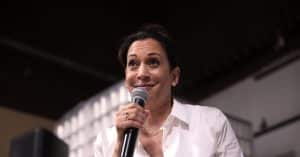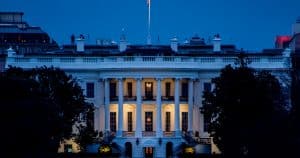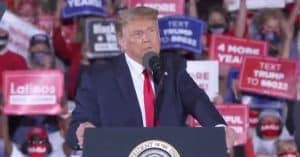Trump Files Motions To Dismiss Classified Documents Case
In a bold move, former President Donald Trump's legal team has launched an effort to dismiss the federal classified documents case currently pending against him.
Trump's defense team is arguing for the dismissal of the documents case -- in which he faces nearly 40 criminal counts -- on several fronts, including presidential immunity and claims of political persecution.
The legal battle reached a new peak on Thursday when Trump's attorneys filed motions seeking to terminate the case in its entirety. The motions rest on several pillars: presidential immunity, the claim of an unlawfully appointed special counsel, statutes deemed inapplicable to Trump's actions, and rights under the Presidential Records Act, as ABC News reports.
A Detailed Look at the Charges and Legal Strategy
In June of last year, Trump entered a plea of not guilty to the charges laid out against him. The accusations include not only the unlawful retention of classified documents but also efforts to obstruct the government's attempts to recover these materials. Trump's defense has consistently framed the investigation as a politically motivated witch hunt, a narrative intended to question the legitimacy of the legal proceedings.
Trump is not alone in facing charges; Walt Nauta, his longtime aide, also pleaded not guilty to related accusations. The legal challenges extend to Carlos De Oliveira, who, along with Nauta, is implicated in a superseding indictment. This additional charge accuses the trio of attempting to delete surveillance video footage at Mar-a-Lago, further complicating the case with allegations of obstruction.
The layers of legal defense mounted by Trump's team reveal a multifaceted strategy. By invoking presidential immunity, they argue that the former president's actions were within his rights, a point of contention that will likely play a central role in the proceedings. Additionally, the challenge to the special counsel's appointment and the application of the Presidential Records Act underscores the defense team's effort to dismantle the prosecution's case from multiple angles.
The Political and Legal Implications Unfold
At the heart of this legal battle are the charges accusing Trump of mishandling classified documents. The severity of the allegations -- refusing to return documents containing national defense information—casts a shadow over Trump's post-presidential life. The obstruction charges, tied to alleged attempts to delete surveillance footage, add a layer of complexity to the case.
Trump's public response to the charges has been to vehemently deny all allegations, reinforcing his narrative of being the target of a political witch hunt. This stance, while rallying his base, also sets the stage for a legal showdown that could have far-reaching consequences for presidential accountability and the handling of classified information post-tenure.
Exploring the Legal Grounds for Dismissal
The deadline for filing motions to dismiss was a critical juncture in the legal proceedings, with Trump's team meeting this cutoff to challenge the prosecution's case. Their arguments encompass a broad spectrum of legal theories, from the technicalities of the special counsel's appointment to the broader constitutional questions raised by the Presidential Records Act.
The assertion of presidential immunity as a basis for dismissal introduces a pivotal legal debate. This defense posits that the president's actions, especially those related to national security and document handling, are beyond the reach of conventional legal scrutiny. This argument, if accepted, could redefine the scope of presidential powers and their limits. The challenge to the special counsel's appointment and the inapplicability of certain statutes represents strategic efforts to undercut the legal foundations of the case.
The Broader Context of the Presidential Records Act
The Presidential Records Act, a cornerstone of Trump's legal argument, is being interpreted by his team as affording him the right to retain custody of the documents in question. This interpretation challenges conventional understandings of the Act and raises questions about the balance between transparency, security, and executive privilege.
The case against Trump, Nauta, and De Oliveira for allegedly attempting to obstruct justice by manipulating surveillance footage adds a dimension of urgency to the proceedings. The charges of obstruction, combined with the accusations of mishandling classified documents, paint a complex legal picture that tests the boundaries of presidential conduct and accountability.
Conclusion: A Legal and Political Saga Continues
In conclusion, former President Donald Trump's legal team has mounted a comprehensive challenge to the classified documents case, leveraging arguments of presidential immunity, the legality of the special counsel's appointment, and the applicability of statutes and the Presidential Records Act.
Trump, along with associates Walt Nauta and Carlos De Oliveira, faces charges of mishandling classified information and obstruction. As Trump calls the investigation a political witch hunt, the legal battle tests the limits of presidential powers and accountability. The outcome of these motions to dismiss will not only shape Trump's legacy but also set precedents for future presidents and their handling of classified information.




